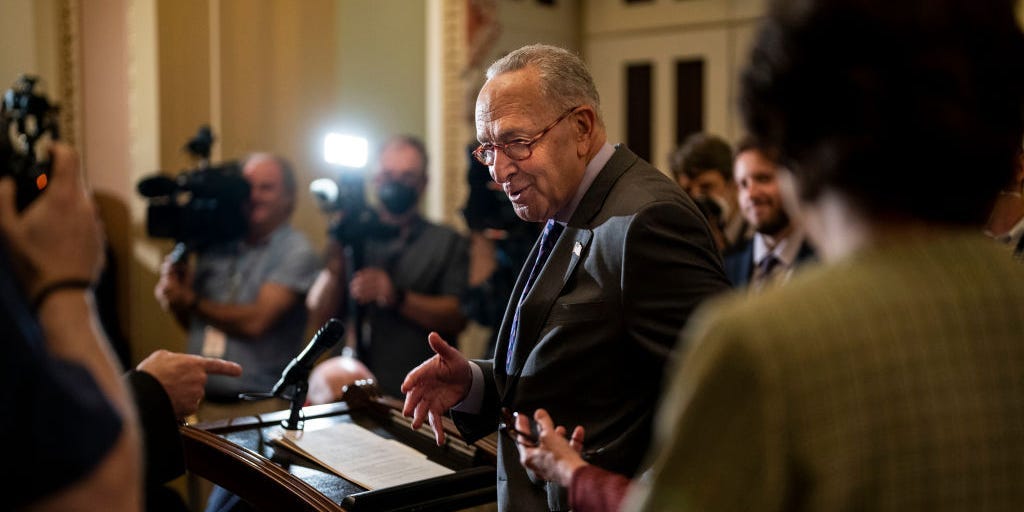- Democrats intend to levy a tax on some rich Americans to extend Medicare's solvency.
- It would apply to high-earning individuals and couples who earn money from certain businesses.
- Democrats are still ironing out how to pay for other parts of a $1 trillion package.
Senate Democrats are eyeing a new tax on rich Americans to extend Medicare's lifespan as part of a slimmer economic spending bill they hope to pass by the end of the month.
Under the proposal, Democrats will impose a 3.8% tax on some high-earners who draw income from so-called "pass-through" businesses, per a source familiar with the ongoing negotiations. That would delay a shortfall in the Medicare hospital trust fund to 2031 from 2028, providing a three-year extension for benefits being fully paid.
The tax would apply to individuals who earn $400,000 or more annually and couples, trusts, and estates making at least $500,000.
"Pass-through" businesses — defined as entities not subject to the corporate income tax — make up the vast majority of American businesses, per the Brookings Foundation. They range in size from small family-owned shops to large companies and their profits flow to owners who then pay individual income tax on it. Many have been able to avoid paying the 3.8% net income investment tax up to now.
If Congress doesn't step in, the Medicare hospital trust fund would only be able to pay 90% of its bills starting in 2028. That would leave older Americans on the hook for some medical expenses.
Senate Majority Leader Chuck Schumer is continuing his private negotiations with Sen. Joe Manchin of West Virginia. The conservative Democrat sank the expansive, House-approved Build Back Better bill in December and the party's economic agenda has been stuck in neutral ever since. Under reconciliation, the legislative maneuver maneuver allowing Democrats to circumvent a Republican filibuster and approve bills with a simple majority vote, the party needs all 50 Democratic senators on board to move legislation.
In the past, Manchin has expressed concern about Medicare running out of money to cover its growing spending and has pushed to extend its solvency.
"Medicare is a lifeline for millions of American seniors and Senator Manchin has always supported pathways to ensure it remains solvent," Manchin spokesperson Sam Runyon said in a statement. "He remains optimistic there is a path to do just that."
There's still haggling behind the scenes on other crucial Democratic priorities like clean-energy tax incentives to combat the climate emergency and an extension of Affordable Care Act subsidies. Democratic aides are still ironing out how to pay for a roughly $1 trillion bill with half of spending going to deficit-reduction in an effort to accommodate Manchin's narrow parameters.
Other tax proposals like a surtax on millionaires have been knocked out.
But Democrats struck an agreement on some aspects of the bill, like cutting prescription drug prices. Senior Democrats on Wednesday submitted legislative text on prescription drug prices to the Senate parliamentarian, the top official overseeing that Democrats are able to pass on their own without the GOP through the reconciliation process.

